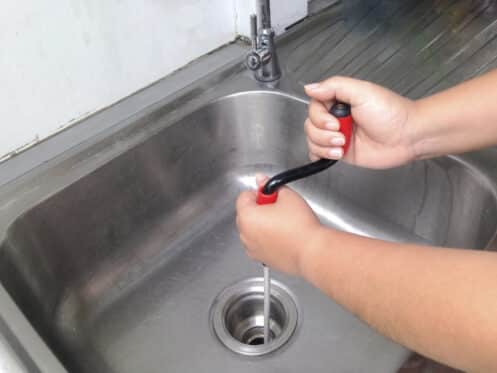Important Bathroom Plumbing Tips for New Homeowners
Important Bathroom Plumbing Tips for New Homeowners
Blog Article
What are your concepts on 6 Essential Plumbing Checks for New Homeowners?

For brand-new home owners, understanding and preserving bathroom pipes can save both money and time by protecting against pricey issues down the line. Below are some necessary restroom pipes suggestions to aid you keep everything running efficiently.
Prepare for Cold Weather
Safeguard your pipes from freezing during cold weather by protecting pipelines in unheated locations like cellars, attic rooms, and garages. Throughout extreme chilly, allow cold water drip from faucets served by revealed pipelines to aid protect against cold.
Set Up Normal Upkeep
Think about scheduling annual examinations with an accredited plumbing technician. They can detect issues that you might miss out on, such as covert leaks or deterioration on pipelines and fixtures. Regular upkeep helps expand the life of your plumbing system and can protect against emergencies.
Acquaint Yourself with the Main Shut-Off Shutoff
Recognizing where the major water shut-off valve lies in your home is vital. This enables you to swiftly turn off the water in case of significant leakages or during plumbing emergency situations, avoiding comprehensive water damage.
Regularly Evaluate for Leakages
Small leaks can lead to large troubles. Frequently inspect under sinks, around toilets, and near pipes components for any type of indications of leakages. Look for wetness, little drips, or rust. Capturing and fixing leakages early can prevent more serious damages and conserve water.
Keep Your Hot Water Heater
Guarantee your water heater is set to an appropriate temperature (normally around 120 levels Fahrenheit) to stop scalding and lower power usage. Flush the tank annually to eliminate debris buildup, which can lower the performance and lifespan of your heating system.
Update Your Fixtures
If your home has older components, consider updating to much more efficient designs. Modern commodes, showerheads, and taps are made to use less water while giving great pressure, which can substantially minimize your water costs and ecological impact.
Beware with Do It Yourself Plumbing Repair Works
While it's tempting to handle all home repair work by yourself, beware with plumbing. Some issues may require professional knowledge, specifically if they involve major water lines or sewer repairs. Working with a professional can in some cases be more cost-efficient than DIY, especially if it prevents additional damages.
Do Not Overlook Slow Drains Pipes
If your sink or bathtub is draining gradually, it's often an indication of a blockage forming. Addressing this very early can protect against a full clog. Use a bettor or a plumbing professional's serpent to clear out debris. Stay clear of making use of chemical drain cleaners as they can harm your pipes over time.
Know What Not to Flush
Toilets are not waste disposal unit. Stay clear of purging anything aside from toilet paper and human waste. Products like wipes, womanly hygiene items, and cotton swabs need to be thrown away in the garbage to prevent obstructions and sewer back-ups.
Install Strainers in Drains
Location filters in your sink and tub drains to catch hair and various other debris prior to they enter your pipes system. Cleaning up the filters routinely will help stop build-up and keep water streaming openly.
Final thought
Recognizing and maintaining your home's washroom plumbing can avoid lots of common problems. By adhering to these essential pointers, you can guarantee your restroom stays useful and efficient, saving you time and money in the future.
5 Plumbing Tips for First-Time Homeowners
Know How to Shut Off the Water
In most homes, the water can be shut off at two places: at the appliance or fixture itself, and for the whole house. For instance, look under your sink or behind the toilet. See those little knobs that connect with the pipes? Those are the shut off valves for those fixtures. Simply turn them until the water is off. The main shut off valve (which controls water throughout your entire home) will be outside, where the water feeds into the structure. You might need a dedicated tool, such as a water shut-off key, to shut off the water at the main.
Build an Emergency Plumbing Kit
Everyone knows how important it is to have a high-quality plunger around the house. But there are other things that can help you out when issues arise with the pipes. Building an emergency plumbing kit to solve issues on your own is part of any list of basic plumbing tips. Consider adding these things to create a basic plumbing kit:
Adjustable wrench Tongue-and-groove pliers Screwdrivers Plumber’s tape Pipe sealant Duct tape Set of hex keys Clip light for working under cabinets Auger and hand snake Do a Little Research
Many small leaks can be handled by replacing a small part of the piping system, tightening part of a faucet, or even changing out an aerator. Take the time to browse how-to articles for common plumbing problems, such as a running toilet or slow-draining sink. You might be surprised to find how easy it can be to do simple things yourself, like replace a valve in the back of the toilet.
Keep it Simple With No Chemicals
If you have a clog, you might be tempted by the promises of liquid drain cleaner. While this might work at first, it actually causes more damage deep in the pipes, eventually creating even more problems down the road.
Instead, try using baking soda and vinegar to create a strong fizzing effect that can help break up clogs and clear gunk from drains. Follow it with boiling water to clean the pipes even more thoroughly.
Take Care of Your Garbage Disposal
Be cautious about what you put down the disposal. Avoid pouring in fats, oils, and grease, as these are a surefire way to get a clog. Beware of certain foods too, such as celery or bones, as they can lodge in the works. Always run the disposal with water flowing.
https://modernize.com/homeowner-resources/other/10-plumbing-tips-for-first-time-homeowners

Click Here Report this page